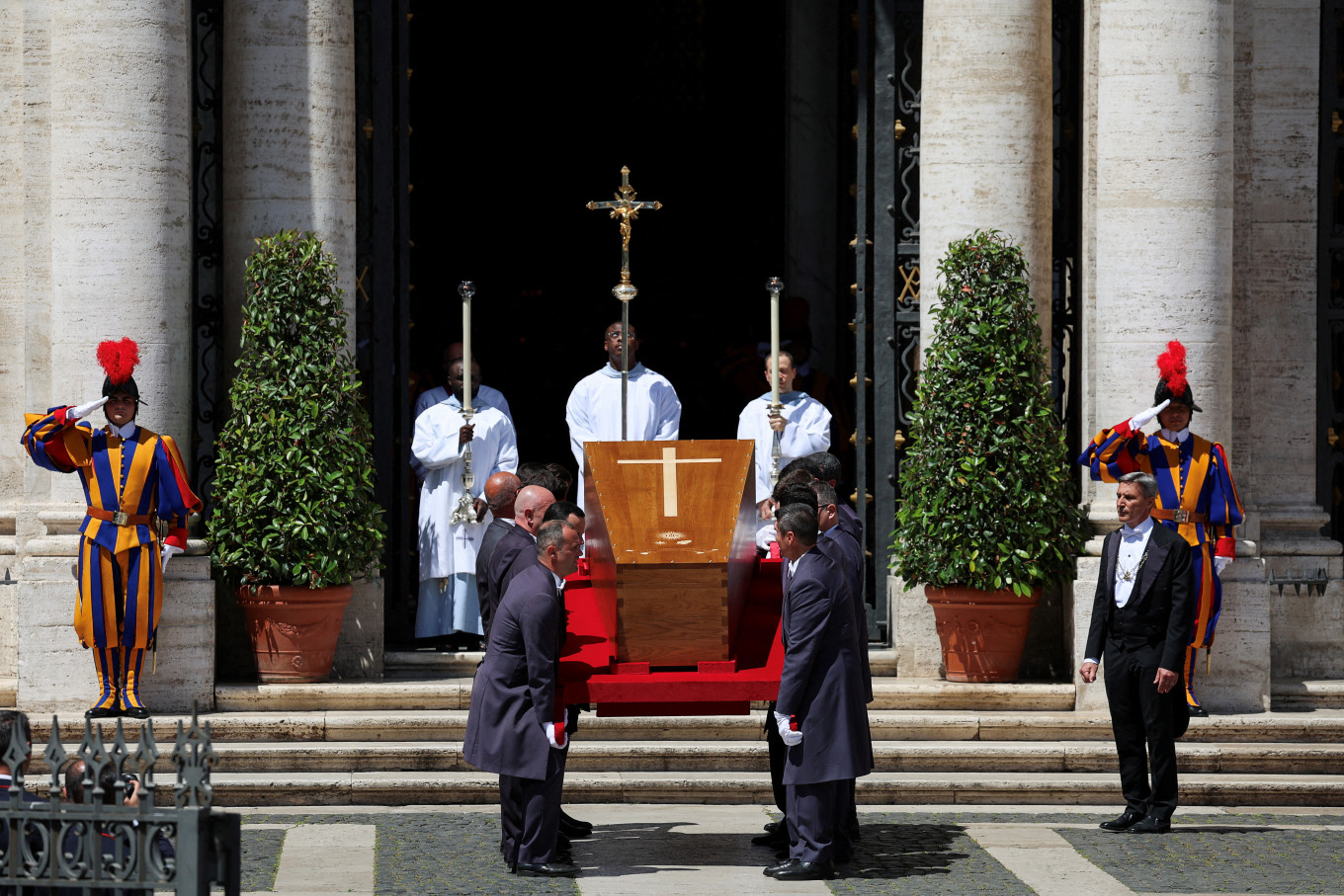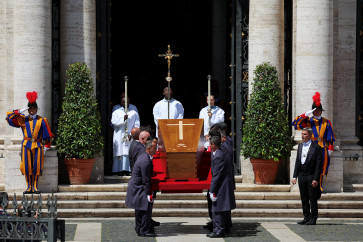Popular Reads
Top Results
Can't find what you're looking for?
View all search resultsPopular Reads
Top Results
Can't find what you're looking for?
View all search resultsThe blessed legacy of Pope Francis on interreligious ecotheology
Pope Francis has left an impact on ecotheology through his writings and interreligious agreements, which underline the role of religion in lifting human dignity and promoting togetherness as a means to solving the man-made ecological crisis.
Change text size
Gift Premium Articles
to Anyone
T
he death of Pope Francis on April 21 surprised everyone because it happened shortly after his semblance of recovery from illness, as observed the previous day when he gave blessings to Rome and the world on Easter.
He was laid to rest the following Saturday in the Papal Basilica of St. Mary Major in Rome in accordance with his wishes. This deviated from the traditional interment of pontiffs in Saint Peter’s Basilica in the Vatican and was a form of Pope Francis’s simplicity as well as his devotional closeness to the Blessed Virgin Mary, whom he loved until the end of his life.
Through this modesty, Francis demonstrated his care for Earth as a common home that is being destroyed by a relentless ecological crisis. The dignity of human life is abused and oppressed by impacts from the greed of capital owners who exploit the planet and threaten the future of humankind.
I summarize these ideas in a theoretical proposition about interreligious ecotheology, which is a challenge to realize for everyone, now and in the future, for the sake of the integrity of creation and environmental sustainability as well as the dignity of human life, especially the small, weak, poor, marginalized and disabled.
By examining Francis’s thinking, we can find one important idea he taught that is related to interreligious ecotheology, though he did not use that term. This idea can be found in his encyclical Laudato Si' (Praise Be to You, 2015), the Document on Human Fraternity for World Peace and Living Together (2019), also known as the Abu Dhabi Declaration, and the Joint Declaration of Istiqlal 2024.
The ideas and teachings contained in these writings can be explained simply, as follows.
Pope Francis wrote Laudato Si’ (LS) with the purpose of “wanting to address every person living on this planet and to enter into dialogue with everyone about our common home” (LS 3), while appreciating that the Church, other Christian communities and other religions expressed the same profound concerns and offered valuable reflections on the ecological crisis (LS 7).



















